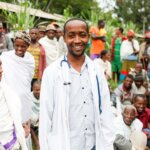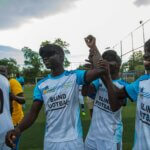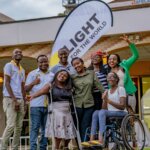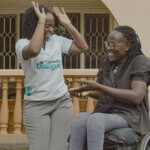- Disability Rights
- Events
- Latest
Sunday 3 December 2023, International Day of People with Disabilities, is a day to mark progress on disability rights, as well as to highlight barriers still preventing full participation.
International Day of People with Disabilities is a moment to celebrate the vast achievements of the global disability rights movement itself – especially organisations of people with disabilities (OPDs).
OPDs – sometimes also referred to as DPOs – are the representative bodies for people with disabilities.
They exist on all levels – from membership organisations – including African Disability Forum (ADF), European Disability Forum (EDF) and International Disability Alliance (IDA), to umbrella organisations and to national organisations, such as the National Union of Women with Disabilities of Burkina Faso (UNAFEHB) — to many, many sector-based, grassroots and peer initiatives.
OPDs should take the lead in all matters related to disability
African Disability Forum
On International Day of People with Disabilities, several of our esteemed partner OPDs, give their unique insights and tips into the status quo of disability rights. They also reveal their top tips – for NGOs, governments and activists alike – to ensure progress into the future.
The results – summarised below – are a must-read for anyone working in the development and disability space!
Disability rights successes in 2023
We asked OPD representatives: “What was the greatest success for disability rights in 2023?”
Their answers revealed the continued importance of achieving policy and legal milestones, to ensure “real life” results:
- The top milestone to celebrate for South Sudan Union of Persons with Disabilities (SSUPD) and South Sudan Association of the Visually Impaired (SSAVI) is: “South Sudan signed the UN Convention on the Rights of Persons with Disabilities (CRPD).”
- “Burkina Faso signed the Charter on Inclusion of Persons with Disabilities in Humanitarian Action (Charte pour l’inclusion des personnes handicapées dans l’action humanitaire)” says Union Nationale des Associations pour la Promotion des Femmes Handicapées du Burkina (UNAFEHB, National Union of Women with Disabilities of Burkina Faso).
- National Union of Disability Organisations in Rwanda (NUDOR) celebrates “enhancement of technical skills for youth with disabilities as well as better joint coordination and planning with partners”.
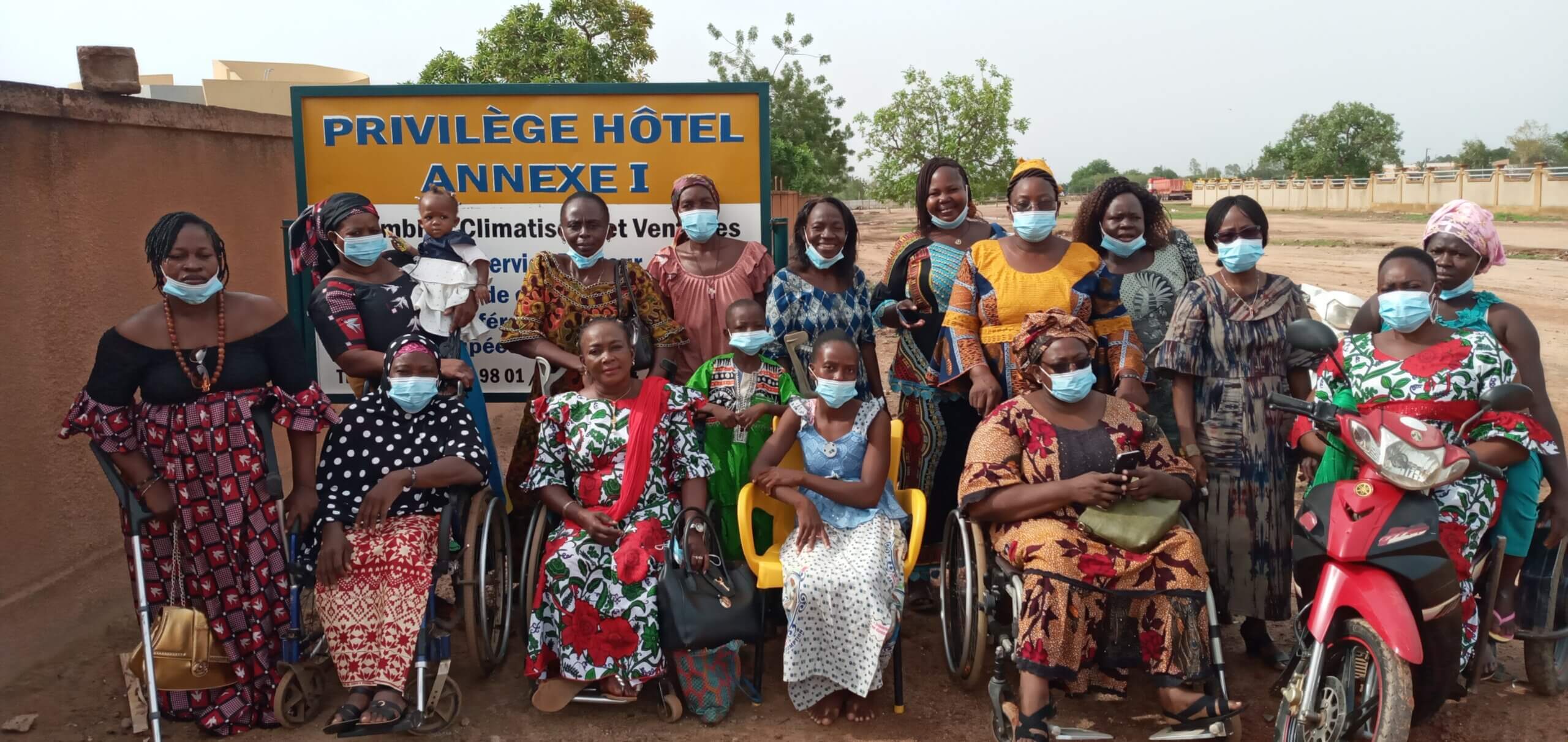
Disability rights challenges in 2023
Next, we asked OPD partners: “What was the biggest challenge for disability rights in 2023?”
The answers varied – showing the many barriers still in the way of inclusion – from conflict, to employment inequity, to the climate crisis.
- “The disability community still faces many ongoing challenges through conflicts and lack of accessibility.” says the EDF.
- According to UNAFEHB and Ghana Federation of Disability Organisations (GFD) “establishing an employment equity policy and the right to work for persons with disabilities was a challenge.” says “Ensuring people with disabilities are involved in implementing and monitoring the CRPD” says Joint National Association of Persons with Disabilities (JONAPWD).
- From the point of view of NUDOR, “lack of accessibility, communication barriers, discrimination, barriers to education and employment and social exclusion”.
- In South Sudan, SSUPD says “people with disabilities are extremely affected by the ongoing economic crisis and worsening natural disasters”.
Hopes for disability inclusion in 2024
Looking towards the future on International Day of People with Disabilities, the next question to OPD partners was: “What’s your main hope for disability rights for 2024?”
- According to ADF and GFD, “more countries will sign and adhere to the African Disability Protocol.”
- “We hope for greater participation and representation of people with disabilities at all levels of government, stronger commitment to the CRPD and more advocacy efforts in rural areas” says SSAVI.
- “We hope for better access to funding, especially to improve political participation” says Naffe Tusobola Foundation.
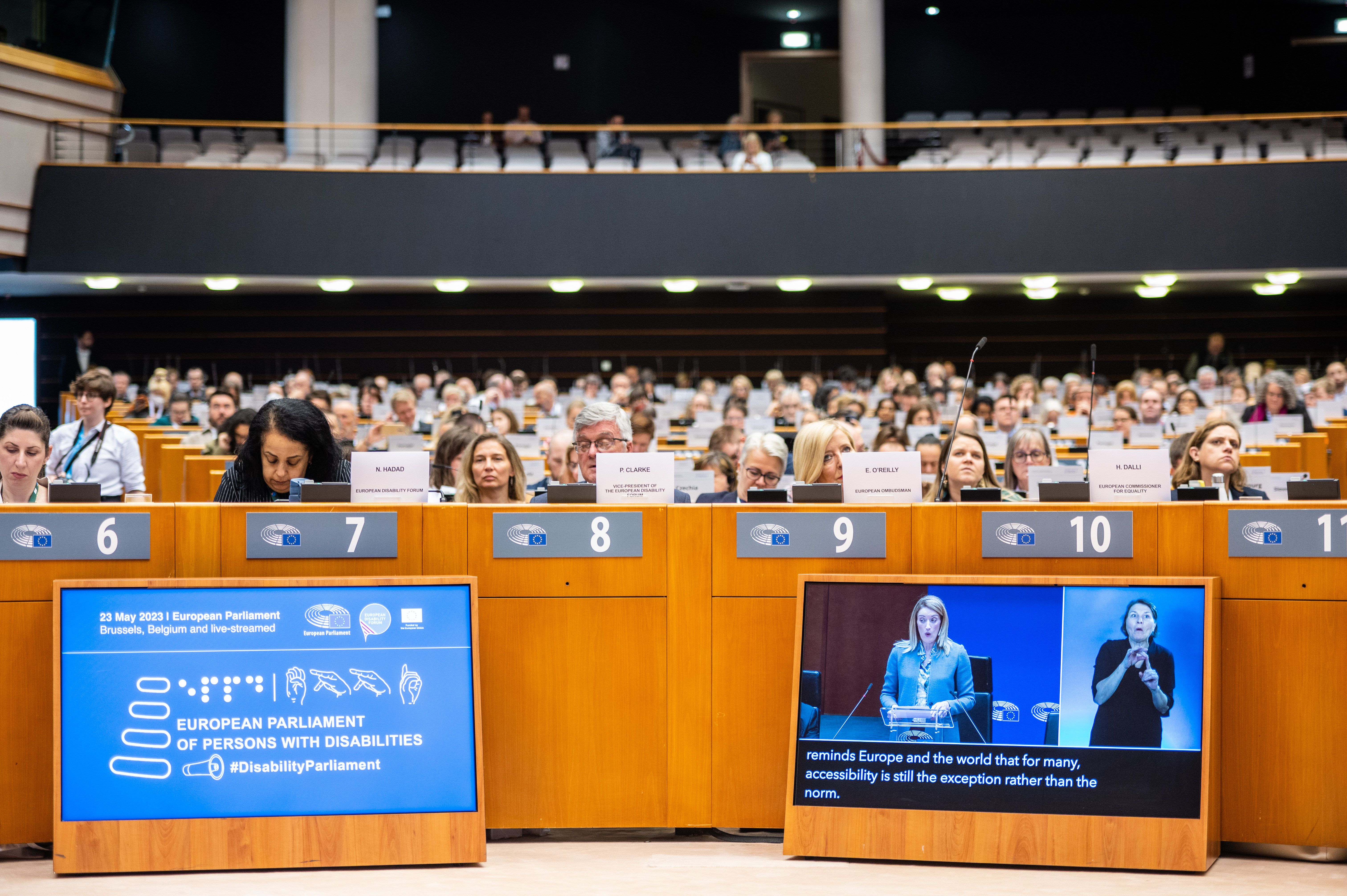
Advice to allies: how should we work towards inclusion?
Finally, we asked OPDs what advice they would give to a range of stakeholders, who want to achieve progress on disability rights, in partnership.
Government entities, activists, NGOs and the general public can – and should – play their part as allies to OPDs.
Governments can actively contribute to upholding disability rights, and their commitments to the legal instruments.
- According to EDF, “governments, NGOs (Non-Governmental Organisation) and regional bodies, like the European Union, should involve OPDs in their policies, programmes, budgets, and actions. They should ensure their work is accessible to all.”
- ADF, UNAFEHB, SSAVI, SSUPD, GFD, NUDOR, JONAPWD and National Union of Burkina Faso Association for Blind and Visual impairments (UNABPAM) all agreed that “Governments should ensure that they fully implement and comply with disability rights and should sign and ratify the African Disability Protocol.”
- “People with disabilities should be consulted at the onset of all existing and emerging programmes, policies and practices,” recommends Naffe Tusobola Foundation.
All stakeholders should ensure that intersectionality and disability are central to their activities.
Ghana Federation of Disability Organisations
Activists, NGOs and OPDs can also play their part in promoting disability inclusion.
- “Activists should drive issues-based campaigns and support disability inclusion actions.” says JONAPWD.
- GFD emphasises that “NGOs should make sure that their programmes are disability inclusive.”
- “NGOs must mainstream disability rights into broader civil right movements and OPDs need unified coordination to strengthen global disability inclusion” says JONAPWD.
- SSUPD highlights, “with support of partners, OPDs should work to reach people with disabilities in rural areas”.
A note of thanks on International Day of People with Disabilities
“At Light for the World, our work would not be possible without our brilliant OPD partners. They are crucial to everything we do in working towards disability-inclusive societies,” says Elie Bagbila, global head of rights and advocacy at Light for the World.
“They amplify voices who are too often unheard, and fight for disability inclusion. The active participation of OPDs in policy and programme development and politics shapes our societies and contributes to removing social, physical, communication, legal, and institutional barriers.”
“By continuing to work in partnership with OPDs, we aim to achieve a more inclusive society, where every person’s rights are upheld, into 2024 and beyond. This World Disability Day, I would like to extend a heartfelt thank you to all OPDs fighting for inclusion around the world.”
Want to find out more about Light for the World’s approach to partnerships with OPDs? See our policy here: https://www.light-for-the-world.org/publications/policy-partnerships-with-disabled-peoples-organisations/

